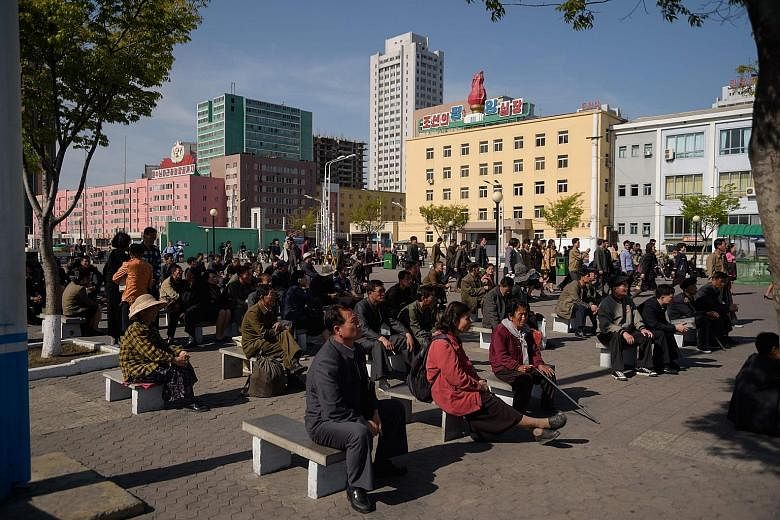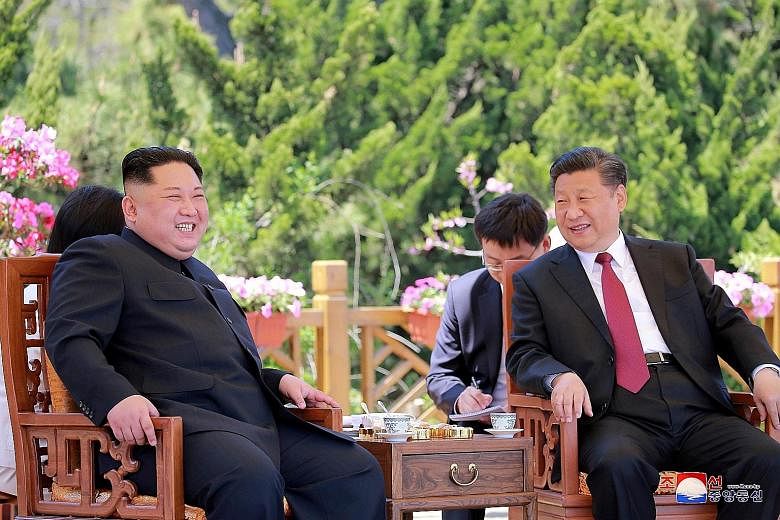SEOUL • North Koreans are upbeat about the economic changes the summit between their leader Kim Jong Un and US President Donald Trump might bring, according to a member of a non-profit group who was in Pyongyang just last week.
Singapore-based Choson Exchange, which has trained some 20,000 North Koreans since 2007, held its latest workshop in Pyongyang last week, focusing on entrepreneurship and start-up skills.
A record number of North Koreans - almost 130 - signed up for the workshop.
Mr Ian Bennett, London-based outreach coordinator for Choson Exchange, said the North Koreans appeared more hopeful compared to a month ago.
"With the news of the Pompeo visit, whilst we were there, and the announcement of the Trump-Kim summit date and location, there was a palpable energy about the place," Mr Bennett said in an e-mail interview.
United States Secretary of State Mike Pompeo said after his second meeting with Mr Kim in the North Korean capital last week that Washington would agree to lift sanctions on the North if it agrees to completely dismantle its nuclear weapons programme.
In a shift from the two-track policy of pursuing economic growth and developing nuclear weapons, Mr Kim announced last month that his country would "concentrate all efforts on socialist economic construction".
Having travelled to the reclusive state 12 times since 2008, Mr Bennett expects to see some of the first economic policy changes in the area of tourism. "I saw a lot of interest in the development of tourism and special economic zones. Personally, I would expect tourism to spearhead the economic policy changes in North Korea, as there is a great deal of construction work going on near Wonsan now," he said.
A large beach resort is being built on the Kalma peninsula in the eastern coastal city of Wonsan.
Success of the special economic zones will need sanctions to be eased and for foreign companies to have confidence that the North Koreans will not seize assets, and will also require infrastructure improvements," said Mr Bennett, who is a consultant in the legal technology sector in London. He started volunteering for Choson Exchange in 2015 after many trips to the North, as he wanted to use his business experience to help people there succeed in their own businesses.
He also occasionally works as a tour guide in North Korea with Koryo Tours.
For the three-day workshop held at the Grand People's Study House, the biggest library in Pyongyang, Mr Bennett recruited workshop leaders, put together seminar topics and shared them with local organisations. He also had overall coordination responsibilities for the trip.
Among the six workshop leaders were a Polish professor from the Singapore Management University who talked about networking theory, and a woman from Stockholm who had founded her own start-up for laundry delivery.
"The North Korean participants were extremely engaged and interested in real world examples that we shared with them. There were a lot of questions about how the economies work in our countries," Mr Bennett said.
"They had particular interest and many questions about pricing and cost structures, as well as working with import and export tariffs. A lot of people are keen to start joint ventures, but obviously that is not easy in the current sanctions environment."
KOREA HERALD/ASIA NEWS NETWORK


